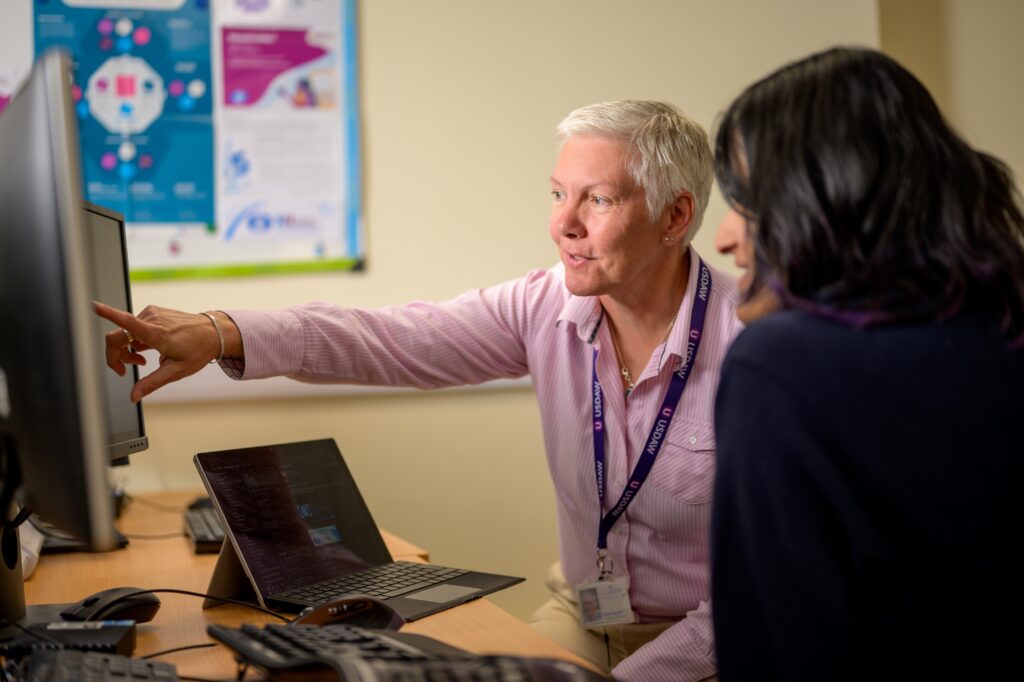Being a Coach and/or a Mentor
We are often so focused on the acquisition of key clinical skills and competencies that the learning agenda can feel very rigid and we can forget about how we can develop thinking
Coaching and mentoring are two highly effective approaches that can be used by work based educators in clinical education to help learners develop their skills and knowledge and also to explore critical thinking, decision making and a more self directed learning approach.

One of the main benefits of coaching is that it provides learners with personalised support and guidance that is tailored to their specific needs and goals. This can be especially valuable in a clinical setting, where learners may have different learning styles and may require different types of support to succeed. Through coaching, educators can help learners identify areas of weakness and develop strategies to overcome them, as well as set and work towards achievable goals.
Mentoring, on the other hand, can provide learners with a more holistic and long-term support system. Mentors can serve as role models and provide guidance on a wide range of issues, including career development, personal growth, and professional development. They can also help learners navigate the complex landscape of clinical education and provide valuable insights and advice based on their own experiences.
Both coaching and mentoring have been shown to have a positive impact on learner outcomes, including increased confidence, improved performance, and better retention of knowledge. In addition, these approaches can help to foster a culture of continuous learning and development within the NHS, which can ultimately lead to better patient care and improved outcomes for the organisation as a whole.
Coaching and mentoring are versatile and adaptable approaches;
- A support worker is struggling to effectively communicate with patients and is feeling overwhelmed by the demands of their role. You could work with them one-on-one to develop specific communication skills, such as active listening and empathetic language, and provide feedback and support as they practise these skills in real-world situations.
- A student is having difficulty understanding complex concepts and is struggling to keep up in their placements. The educator could work with them to identify specific areas of weakness and develop a personalised study plan to help them better understand and retain the material.:
- A support worker is considering specialising in a particular area and is seeking advice on what steps to take. The educator, who has experience in that area, could serve as a mentor and provide insight into the training and experience required, as well as the pros and cons of that particular career path.
It’s important to note that both coaching and mentoring can be highly personalised approaches, and the specific activities and goals will depend on the needs and goals of the learner.
One key coaching model is the GROW model
The GROW model is a widely used framework for coaching that can be applied in a variety of settings, including clinical education. It is a structured approach that helps coaches and learners work together to identify goals, assess current realities, explore options, and develop a plan of action. Here’s a more detailed breakdown of each step:
- Goal: The coach and learner work together to identify specific, achievable goals that the learner wants to work towards. These goals should be SMART (specific, measurable, achievable, relevant, and time-bound).
- Reality: The coach helps the learner assess their current situation and identify any potential barriers or challenges that may impact their ability to reach their goals. This step involves asking questions, gathering data, and helping the learner understand their current reality.
- Options: The coach helps the learner explore a range of potential options or strategies for reaching their goals. This step involves brainstorming and encouraging creative thinking to help the learner generate ideas and consider different approaches.
- Way forward: The coach helps the learner develop a specific plan of action that includes specific steps and milestones. The learner should be actively involved in this process, as they are the ones who will be implementing the plan.
By using the GROW model, coaches can help learners set and work towards meaningful goals, assess their current situation and identify areas for improvement, explore different options and strategies, and develop a plan of action to achieve their goals. It can be used as part of a formal coaching conversation or so guide short ad-hoc opportunities for development. It’s a structured and effective approach that can be customised to meet the specific needs and goals of each learner.
Read this
The North West Leadership Academy has a wealth of resources to support the development of Coaches and Mentors in the NHS in the North West and also offers coaching and mentoring opportunities.There is a good resource on coaching for personal tutors by Imperial College London and your own organisation will have plenty of resources and training available if you want to develop your skills further.
Watch this
Dr Rangan Chatterjee: The NUMBER ONE Key To Being Happy | E110
Some great tips and ideas from an NHS Doctor who has great insight into what will have an impact mentoring and coaching in health. Lots of ideas to take away.
